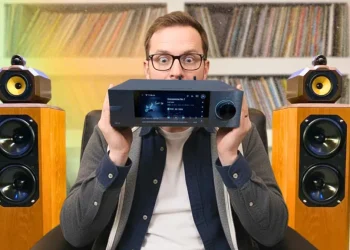7 Reasons FLAC Remains the Go-To Format for Serious Music Listeners
Published Time: 08-13-2025, 22:00
As streaming platforms dominate music consumption worldwide, a growing number of audiophiles are rediscovering FLAC (Free Lossless Audio Codec) files. While services like Spotify, Apple Music, and Tidal offer convenience, they often compromise ownership, audio quality, and control. For dedicated listeners, FLAC provides reliability, fidelity, and a sense of true ownership that streaming can rarely match. Here’s why this high-resolution format continues to hold a strong appeal.
1. Full Ownership of Your Music
When you purchase or download a FLAC file, the music is truly yours. There are no monthly subscriptions, surprise removals, or reliance on a platform’s availability. Once stored on a hard drive or backup system, these files remain accessible indefinitely.
A Reddit user with a collection of 20,000 FLAC tracks from platforms like Bandcamp, Qobuz, and HDTracks explained:
“If my finances change and I can’t afford monthly payments, I still have all my music. The only reason I stream at all is to listen to new music that I don’t own yet. When I hear something I like, I buy it.”
Unlike streaming, where albums may vanish overnight due to licensing disputes, label decisions, or service shutdowns, FLAC guarantees a permanent library. Another user, Hholoxx, summed it up:
“I like to have my collection offline; it gives me the feeling that it’s actually mine.”
2. Complete Control Over Your Listening Experience
Streaming platforms often dictate which versions of songs you hear, default to autoplay, or shuffle tracks unexpectedly. FLAC, however, puts the listener in charge.
Audiophiles can select exact releases—original masters, live bootlegs, or international editions with bonus tracks—without worrying about replacement by a remastered version. You can also customize playback through your preferred media player, adjust EQ settings, and apply personal volume leveling.
“Streaming services prioritize convenience over customization,” one enthusiast noted. “FLAC requires more effort, but everything is on your terms.”
3. Unmatched Audio Quality
FLAC preserves the original mastering of a recording with no data loss, supporting resolutions up to 24-bit/192kHz. This level of fidelity often exceeds standard CD quality.
Even streaming services that advertise “hi-res” audio may fall short. Tracks are sometimes mislabeled or upsampled, resulting in quality that does not reflect the original master. Linux_Jeff, a Reddit user, explained:
“I don’t trust 100% hi-res streaming services. Some tracks that claim high-res aren’t actually high-res.”
Local FLAC playback eliminates buffering, quality drops, or compression artifacts caused by internet limitations. Each listen is consistent and faithful to the original recording.
4. Preservation of Original and Rare Versions
Many streaming platforms automatically replace older albums with modern remasters, sometimes altering dynamics to suit contemporary devices. For collectors, these changes can undermine the listening experience.
User dr3ifach remarked:
“Streaming services tend to replace older masters with versions designed for tiny Bluetooth speakers. I prefer the original CD or tape masters from the 1980s.”
By storing FLAC files locally, audiophiles ensure that their music remains unchanged. This is particularly important for those seeking early CD releases, vinyl rips, or rare pressings that maintain original tonal characteristics.
Rec71, who has converted a 700-CD collection to FLAC over 40 years, noted:
“Although I’ve used streaming in the past, I prefer owning my music instead of renting it. Albums disappear from streaming, or get replaced with remasters. I’m content listening to the music I’ve collected.”
Preserving original versions guarantees that your music always sounds as intended, with no unexpected changes.
5. Reliable Playback Anywhere
FLAC files are immune to the common issues of streaming. You don’t face buffering, playback interruptions, or degraded audio when connectivity falters.
“I mostly listen while flying my aircraft. Cellular is spotty at best, and streaming is not reliable,” user Mobius3through7 shared.
Even on the ground, streaming platforms can crash, update unexpectedly, or alter available tracks. With FLAC, your music is always ready, regardless of internet access or server availability. Owning files also allows you to back them up, reorganize your library, or integrate them into custom setups without restrictions.
6. Broad Compatibility Across Devices
FLAC is widely supported across modern audio players, smartphones, streamers, and car audio systems. As an open-source format, it avoids licensing constraints, making it easier for developers to integrate.
While older devices or some Apple software may require conversion, most platforms support FLAC playback natively. Additionally, files can be converted to other formats such as MP3 or ALAC with minimal loss of quality, allowing flexibility without sacrificing fidelity.
This compatibility ensures that your library can evolve alongside your devices. Whether you upgrade phones, switch media players, or migrate to a new system, your collection remains intact.
7. Reduced Environmental Impact
Streaming music requires constant server activity, consuming significant electricity for processing, storage, and cooling. Repeatedly accessing a song contributes to ongoing energy usage.
In contrast, locally stored FLAC files are played directly from your device. While hard drives draw some power, the energy impact is a one-time cost rather than a repeated environmental footprint.
1For listeners concerned with sustainability, maintaining an offline music library can reduce energy consumption, particularly for frequently played tracks.
Conclusion
Despite the convenience of streaming platforms, FLAC continues to resonate with serious music enthusiasts for its ownership, control, and uncompromised audio quality. From preserving rare versions and ensuring consistent playback to offering broad compatibility and reduced environmental impact, FLAC delivers an experience streaming often cannot match.
As digital music consumption evolves, it’s clear that for many audiophiles, the value of truly owning music outweighs the temporary allure of access-only streaming.
This article was rewritten by JournosNews.com based on verified reporting from trusted sources. The content has been independently reviewed, fact-checked, and edited for accuracy, neutrality, tone, and global readability in accordance with Google News and AdSense standards.
All opinions, quotes, or statements from contributors, experts, or sourced organizations do not necessarily reflect the views of JournosNews.com. JournosNews.com maintains full editorial independence from any external funders, sponsors, or organizations.
Stay informed with JournosNews.com — your trusted source for verified global reporting and in-depth analysis. Follow us on Google News, BlueSky, and X for real-time updates.














